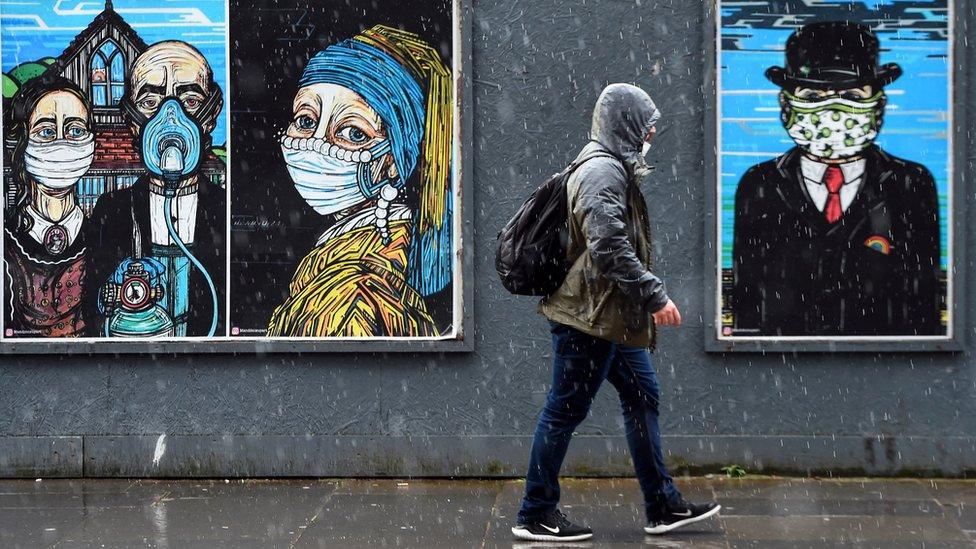Lockdown: New stricter restrictions for west of Scotland
- Published
- comments
Lockdown: New stricter restrictions for west of Scotland
Eleven local authority areas in Scotland including the cities of Glasgow and Stirling, will move into the highest level of coronavirus restrictions from 6pm on Friday 20 November.
Schools and universities will remain open but people in these areas have been told to leave their homes as little as possible, apart from to exercise or to provide an essential service.
The restrictions will remain in place for three weeks and will end on the 11 December.
The First Minister Nicola Sturgeon made the announcement on Tuesday afternoon.
She said the timing of the lockdown would mean that it would not be in place for most of Hanukkah, giving people a greater degree of freedom.
The restrictions are specifically intended to have an impact in advance of Christmas, the most challenging winter period.
Who will be affected by the level four rules?
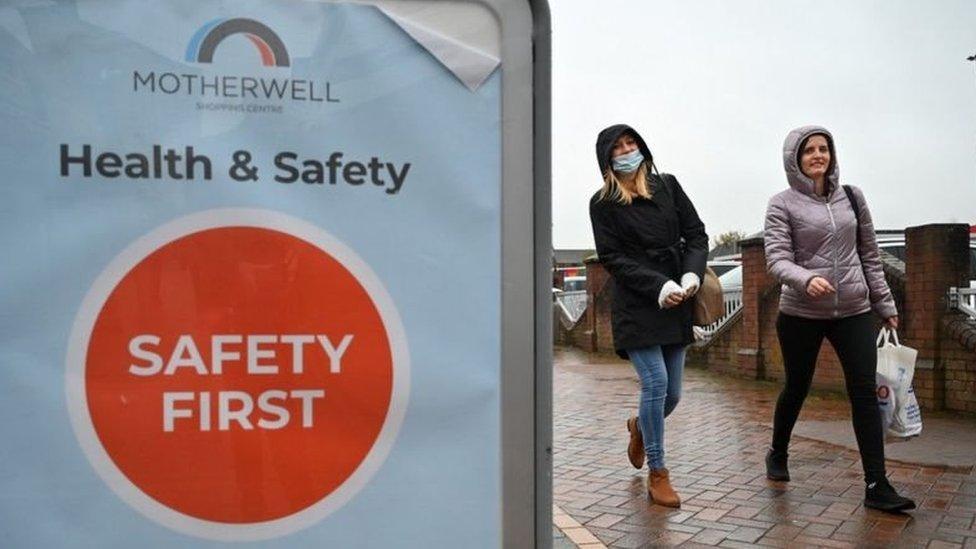
The new rules will affect about 2.3 million people living across west and central Scotland.
Five of the six councils within the Greater Glasgow and Clyde health board area will move from level three to level four, with the exception of Inverclyde.
These are Glasgow City, Renfrewshire, East Renfrewshire, East Dunbartonshire and West Dunbartonshire.
North and South Lanarkshire, East and South Ayrshire, Stirling and West Lothian will also move to level four.
You must not visit other people's homes, but can still meet outdoors with up to six people from two households
People should stay at or close to home as much as possible
Those who can work from home should do so - although construction and manufacturing workplaces can remain open
Only essential indoor retail premises will remain open
Close contact services, such as hairdressers and beauty salons, visitor attractions, leisure and entertainment settings and indoor gyms will close
With the exception of takeaway services, hospitality premises must also shut
But schools will remain open
What are the changes?
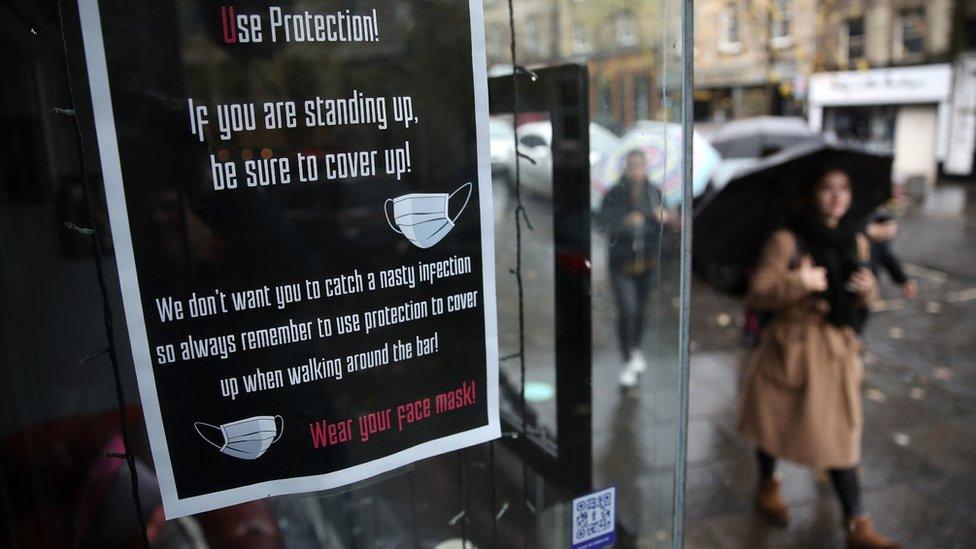
The new levels mean that about 2.3 million people in Scotland will be living under the toughest restrictions
All non-essential shops in level four areas will be closed, along with gyms, swimming pools, libraries, hairdressers and leisure centres.
People in these areas will not be allowed to visit other people in their homes but can meet up in groups of six people outside.
Restaurants and cafes in level four areas will also close, apart from to serve takeaway food.
What about other areas?
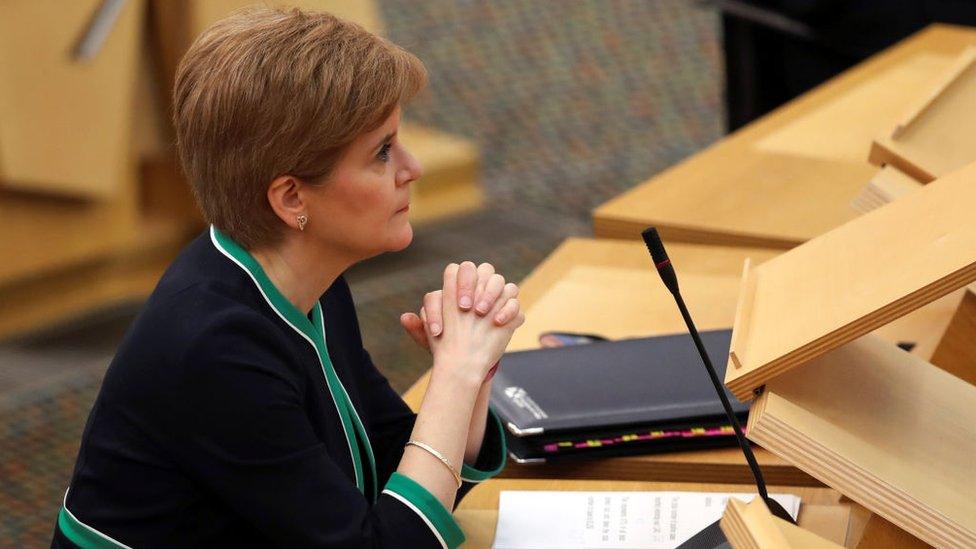
Scotland's capital city of Edinburgh will remain in level three, along with local authority areas of Clackmannanshire, Falkirk, Inverclyde, North Ayrshire, Dundee, Fife, Perth & Kinross and Angus.
The first minister said she hoped these areas would be able to move down to level two if the number of cases fell further.
East Lothian and Midlothian will move from level three to level two after a decline in infection rates.
A further 19 council areas have seen no change to their levels this week.
What about restrictions on travel?
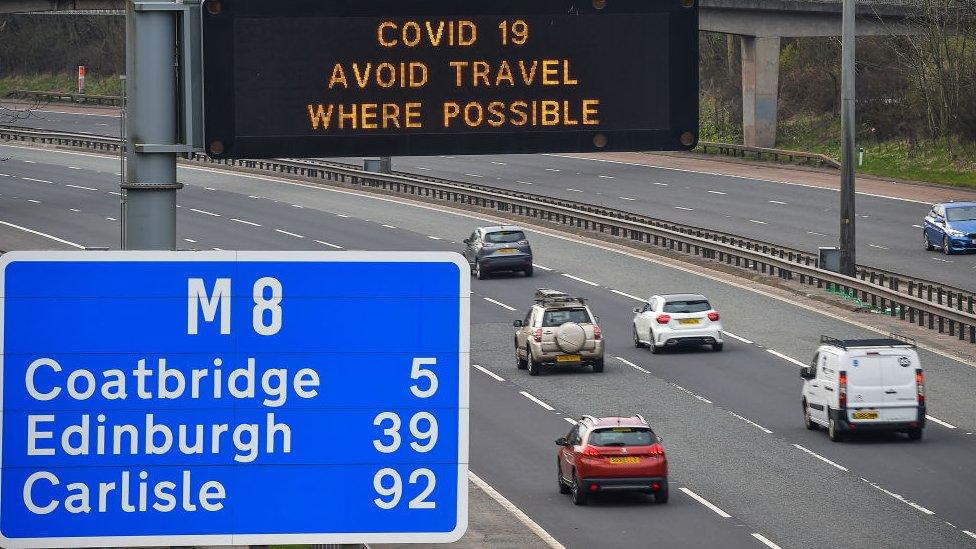
The First Minster said that travel restrictions throughout the country will also become law from Friday.
This means people living in level three or level four areas must not travel outside their own council area, except for certain essential purposes.
Ms Sturgeon warned people that they must abide by travel restrictions if Scotland is to be avoid a countrywide lockdown, as it currently in place in England until 2 December.
She also suggested that there should be no non-essential travel between Scotland and other parts of the UK.
The First Minister said she had made the decision having taken careful account of case numbers and the number of positive tests.
Ms Sturgeon said that restrictions on household gatherings and hospitality have already been making a difference, slowing down the increase in cases considerably.
But warned that while "we have made progress, but the overall level of infection remains higher than we need it to be".
- Published13 November 2020
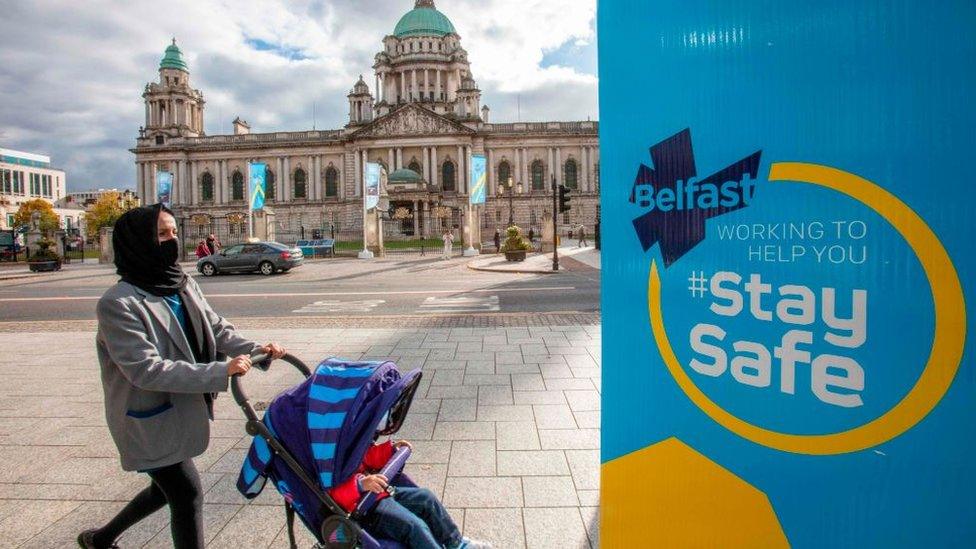
- Published1 November 2020
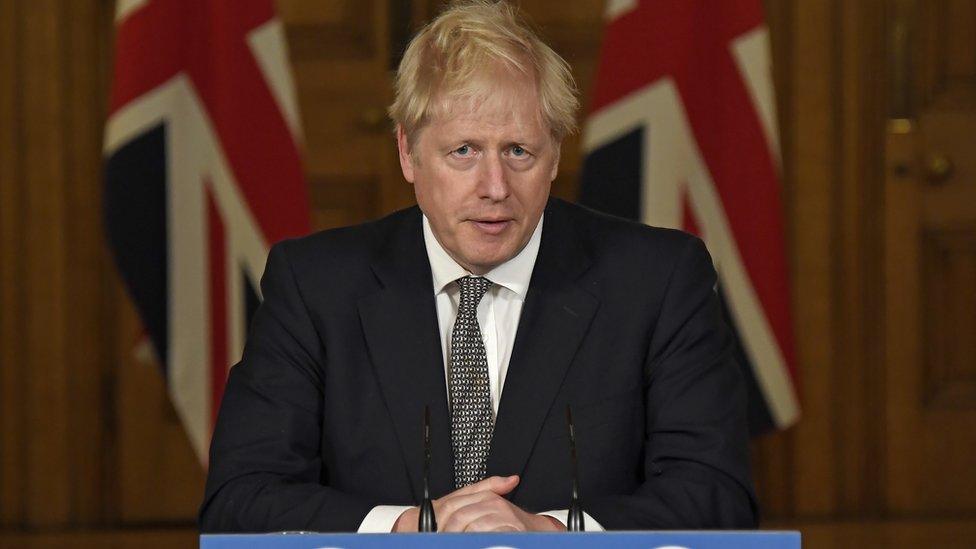
- Published11 November 2020
